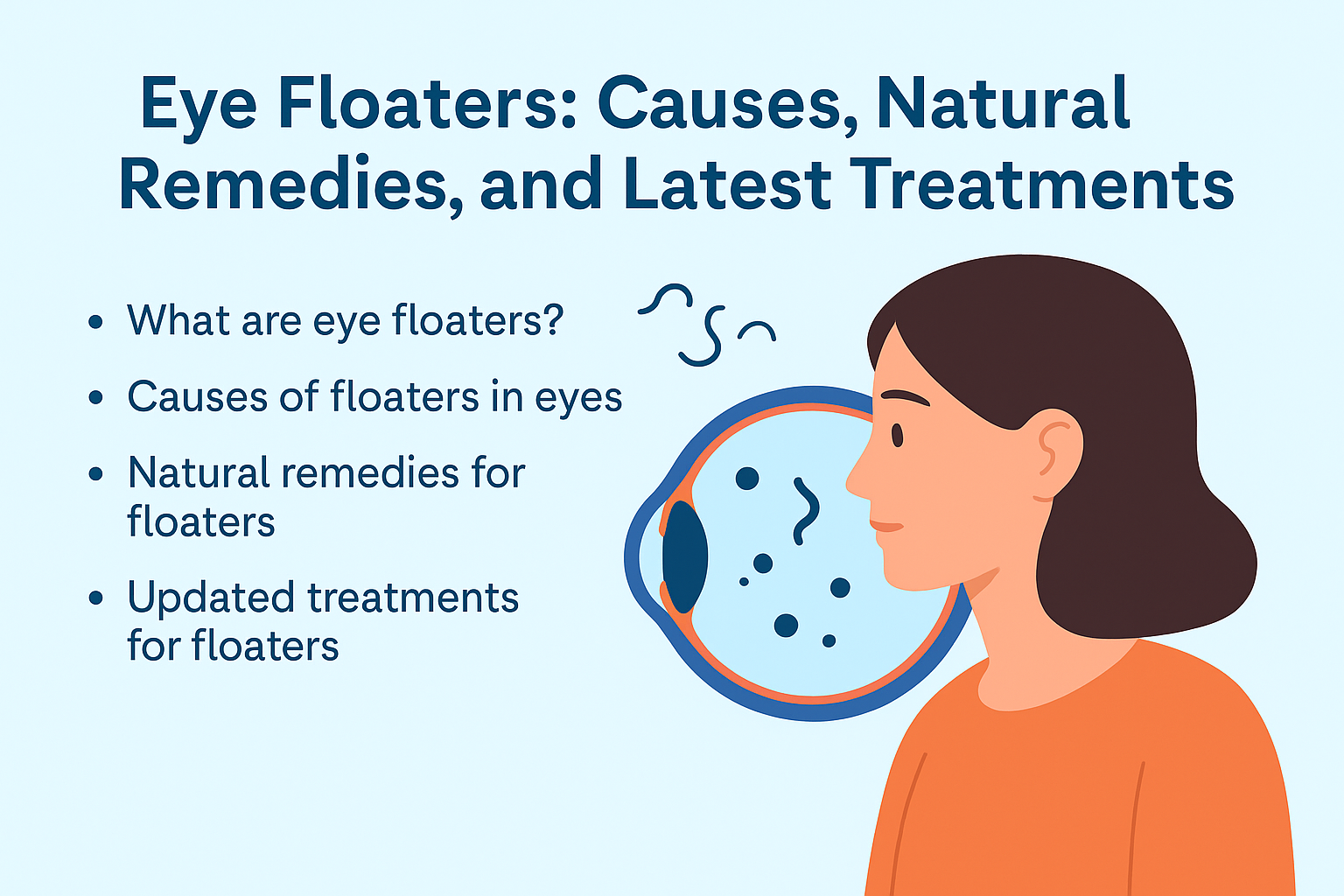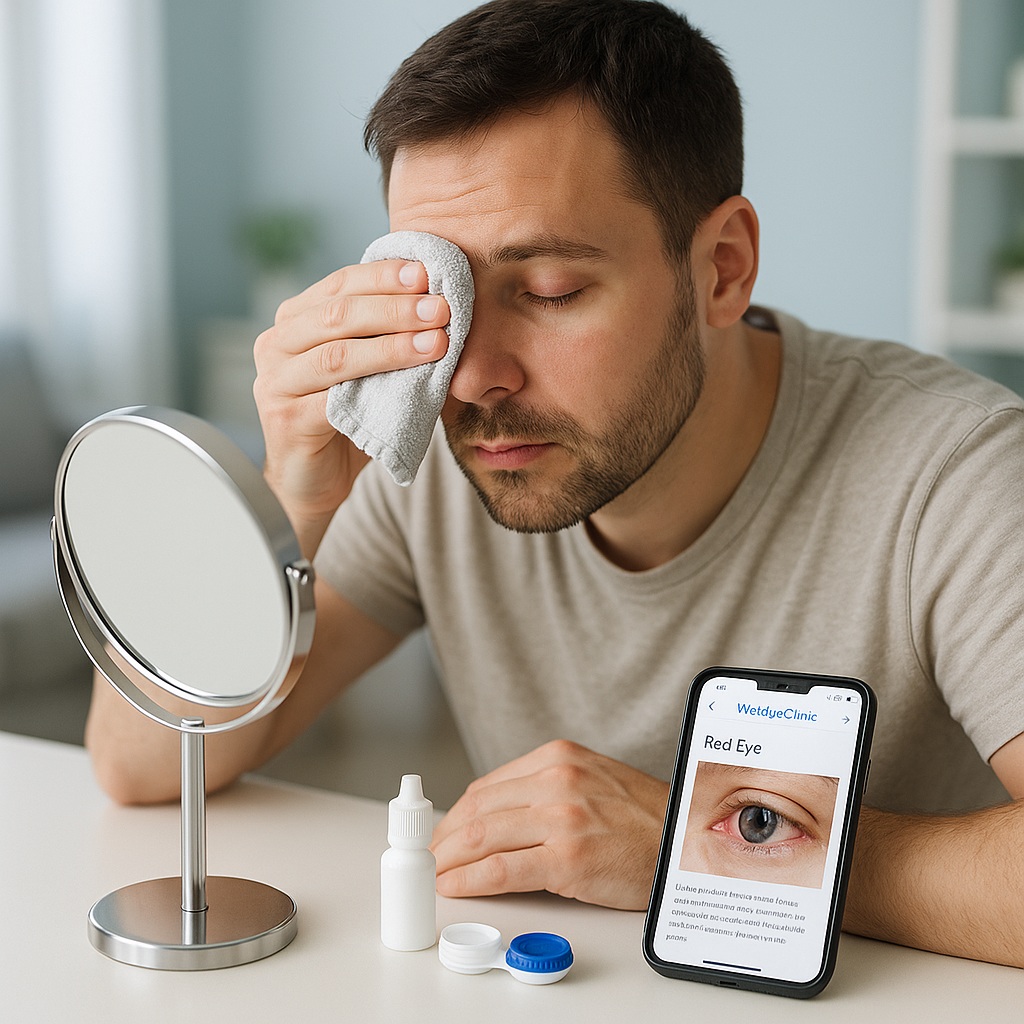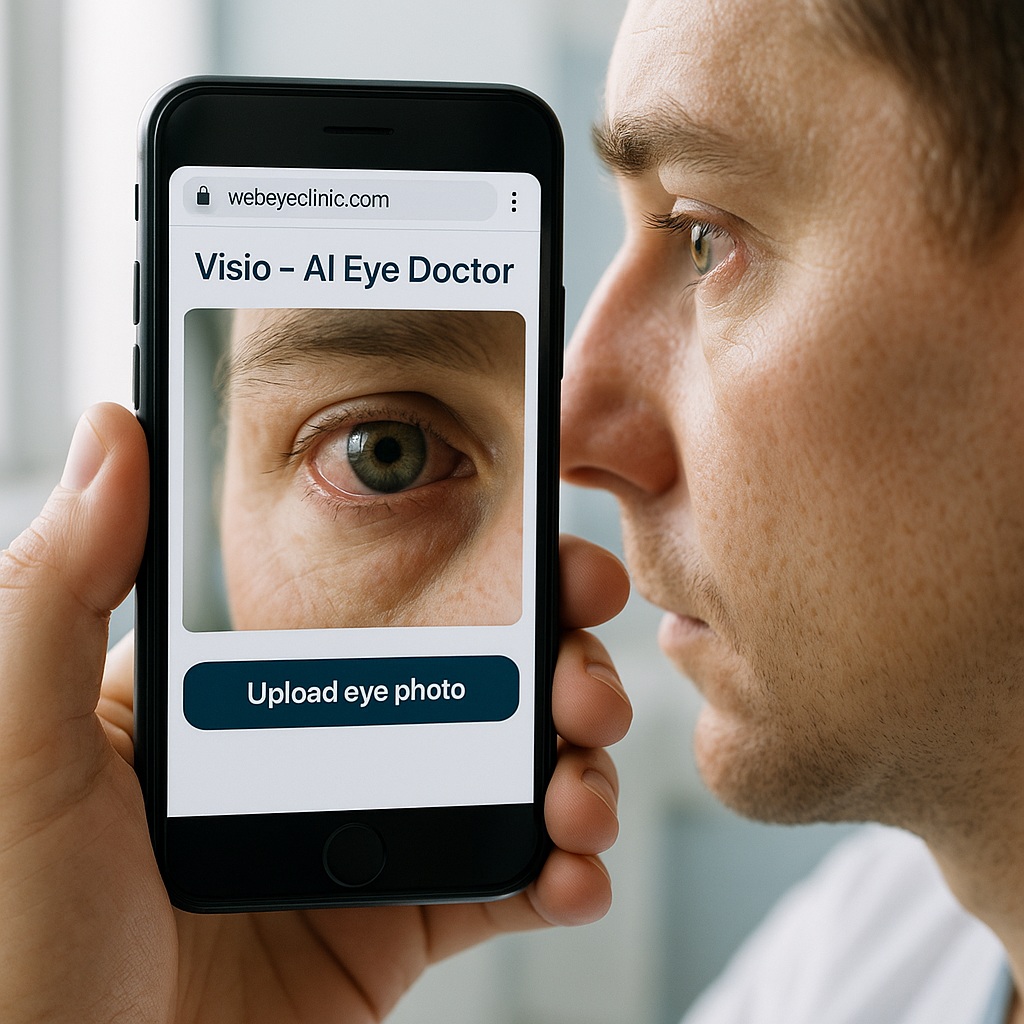Published: August 31, 2025
If you’ve noticed small spots, cobwebs, or thread-like shapes drifting across your vision, you may be experiencing eye floaters. These are common, especially as we age, but they can still cause concern. Understanding what floaters are, what causes them, and how they can be managed will help you protect your eye health and know when to seek medical advice.
What Are Eye Floaters?
They are tiny clumps of collagen or cells that form inside the vitreous, the clear gel-like substance that fills your eye. As light enters the eye, these particles cast shadows on the retina, appearing as dark spots, squiggly lines, or cobweb-like shapes that drift when you move your eyes. While usually harmless, sudden increases in floaters can sometimes signal serious conditions like retinal detachment.
What Causes Floaters in Your Eyes?
The most common cause is the natural aging process. Over time, the vitreous begins to shrink and pull away from the retina, creating clumps and strands. Other causes include:
- Posterior vitreous detachment (PVD): Common after age 50
- Eye trauma or injury: Damage to the eye can trigger floaters
- Inflammation: Conditions like uveitis may cause debris in the vitreous
- Diabetic retinopathy: Blood vessel damage may contribute to floaters
- Eye surgeries: Operations such as cataract removal can sometimes increase floaters
Do Floaters Ever Go Away?
In many cases, floaters become less noticeable over time as your brain adapts to them. Some floaters may move to areas of the vitreous where they cast fewer shadows, making them less bothersome. However, floaters rarely disappear completely. If floaters suddenly increase, appear with flashes of light, or come with vision loss, you should see an eye doctor immediately.
Home Remedies and Natural Remedies for Eye Floaters
While no home remedy can eliminate floaters entirely, some lifestyle and natural approaches may reduce discomfort or improve overall eye health:
- Stay hydrated: Drinking enough water helps keep your eyes healthy.
- Eat antioxidant-rich foods: Leafy greens, carrots, and citrus fruits may protect eye tissues.
- Eye exercises: Moving your eyes up and down or side to side may temporarily shift floaters out of your line of sight.
- Reduce screen time: Frequent breaks help reduce eye strain and perception of floaters.
Castor Oil for Eye Floaters
Some alternative health practitioners suggest castor oil eye drops for reducing floaters. Castor oil is believed to improve lubrication and may reduce oxidative stress in the eyes. However, there is limited scientific evidence supporting this method, and improper use can be harmful. If you consider castor oil, always consult an eye doctor and use only sterile, ophthalmic-grade drops.
Bromelain and Eye Floaters
Bromelain, an enzyme found in pineapples, has been studied for its anti-inflammatory properties. Some early research suggests it may help break down proteins contributing to floaters, but the evidence is still limited. Supplements should only be taken under medical supervision, as bromelain can interact with medications such as blood thinners.
Updated Treatments for Eye Floaters
When floaters significantly interfere with vision, several medical treatments are available:
- Vitrectomy: A surgical procedure that removes the vitreous gel and replaces it with a saline solution. This is effective but carries risks such as infection or retinal detachment.
- Laser vitreolysis: A newer treatment using lasers to break up floaters, making them less noticeable. This is less invasive but not suitable for all types of floaters.
- Observation and monitoring: For most people, floaters are harmless, and the best approach is reassurance and regular checkups.
When to See a Doctor
You should contact an eye doctor immediately if you experience a sudden increase in floaters, flashes of light, or a dark shadow moving across your vision. These symptoms could indicate a retinal tear or detachment, which requires urgent treatment to prevent permanent vision loss.
Conclusion
Eye floaters are common and usually harmless, but they can be frustrating. While natural remedies like hydration, diet, castor oil, or bromelain may provide some support, they are not proven cures. Updated medical treatments such as vitrectomy and laser vitreolysis offer options for severe cases. The most important step is regular eye exams to ensure floaters aren’t a sign of something more serious. By staying informed and proactive, you can protect your vision and reduce the worry that comes with eye floaters.


